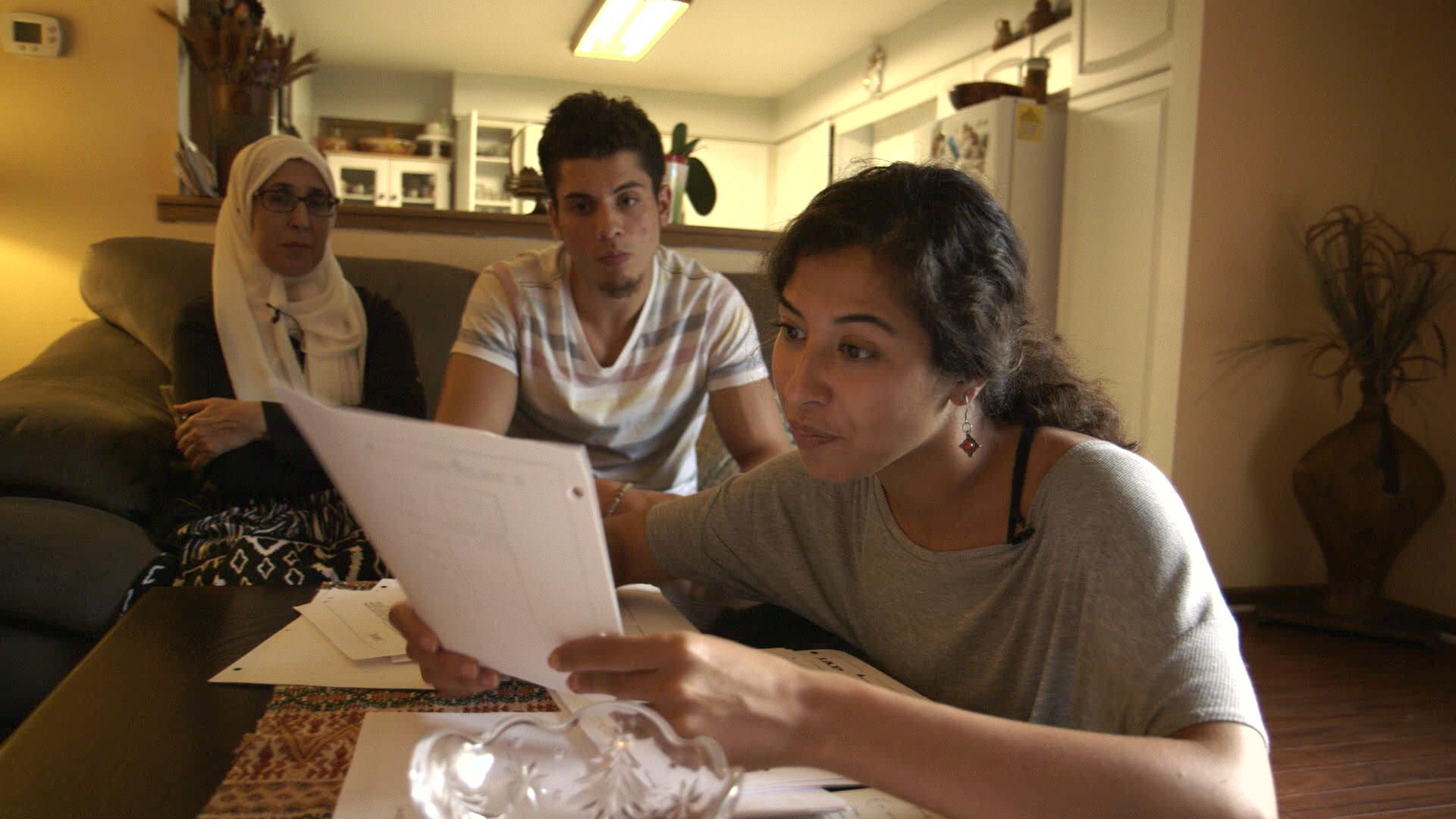For years, neighbors in a Chicago suburb knew they were being watched.
Sometimes it was subtle – an odd car parked outside at all hours, workmen on the phone lines at 3 a.m. Sometimes it wasn’t; men showed up, flashed FBI badges and asked questions for an hour.
“We had all this paranoia in the neighborhood,” recalled Assia Boundaoui (shown here), who has made a PBS film about it. “People didn’t trust each other. We were constantly censoring ourselves.”
This affected all generations, her younger sister Iman recalled. “Our parents were on high alert, on eggshells about what we” said. Other teens used the expression “that was the bomb”; in this Muslim-American neighborhood, kids were cautioned not to.
Bridgeview — a comfortable village, about 15 miles from Chicago’s Loop — had heavy surveillance i the 1990a. Now the sisters – Assia is a journalist, Iman is a civil rights lawyer – have been digging into a former FBI project called “Operation Vulgar Betrayal.”
Why this neighborhood? “There is just a inherent suspicion of this immigrant community (that had) a lot of activism,” said Christina Abraham, a civil rights lawyer and a producer of the documentary.
This was an extraordinary place, as the sisters saw when they were 13 and 10: Their dad, an Algerian native, died a year after buying a home. “At his funeral,” Assia said, “the community raised $200,000 within an hour and paid off our mortgage.”
Typifying that spirit, Assia said, was their neighbor, Mohammed Salah:
“He was the man who would go to the playground and clean up the glass from the floor before w came and played,” she said. “He swept up in front of the mosque …. He was a beautiful human being, a very beloved neighbor, … one of the most trustworthy, beautiful people.”
So when the neighborhood raised money for humanitarian relief in Palestine, he was the person asked to deliver it. On his way back, she said, he was detained and accused of helping military rebels. No charges were filed, she said, but he was “the first American citizen ever put on the designated terrorist watch list”; he stayed on it for decades.
The effect of all this? “It’s just this haze, this cloud of suspicion that follows you,” Assia said.
Or it’s more, Abraham said: “It affected people’s job prospects.It affected people’s ability to volunteer with the government. (One man) wanted to b a chaplain for a prison in Illinois and couldn’t do it because he was named an unindicted co-conspiritor.”
Assia gathered signatures and filed Freedom of Information Act requests, getting the FBI to gradually release 33,000 pages of reports about the neighborhood.
This was an historical piece, she said … and then it became current. “Google told me that it was government hackers who had hacked into my account.”
The former Operation Vulgar Betrayal leader even showed up at her mother’s door, she said. “The villains from the achival footag actually step out into your real life.”
— “POV: The Feeling of Being Watched,” 10 p.m. Monday (Oct. 14), most PBS stations
